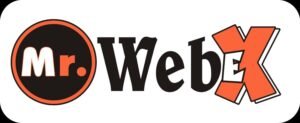The development of quantum computing is projected to create a whole new series of industrial applications through its tremendous processing power and futuristic potential. But how does one use this emerging tech? One way is quantum app development, where the borders between quantum mechanics and everyday software begin to blur.
Read more: Taxi long An
Understanding Quantum Computing Basics
Before we delve into the quantum app tools stage, a quick review of quantum basics. It’s similar to bits in classical computing that qubits hold binary information like; they exist in a magical superposition where they can be 0 or 1 at the same time. Another quantum idiosyncrasy, Entanglement, makes sure any action on one qubit will instantaneously affect its partner, no matter how far apart.
These principles are what underlie quantum’s edge over classical computing. Grasping these points is critical, because they deeply affect quantum programming practice.
Read more: Guia Silent hill Gekkzilla
Importance of Quantum App Development
Quantum app development has become a critical interface for exploiting the extraordinary capabilities of quantum computing. It is not only a step forward in computing technology, but also an entirely new way to solve complex problems. With quantum applications, we can address problems which cannot currently be tackled using traditional computers – such as simulating molecular interactions in drug discovery and optimizing large-scale logistics and supply chains. For developers and industries alike, quantum app development opens up a new world of boundless possibilities: it offers solutions which are more efficient, accurate and revolutionary than can be achieved through current computer paradigms. Here, creativity battles with complexity; developers are encouraged to explore the untapped potential of quantum algorithms and applications.
Read more: Geekzilla autos
Quantum Programming Languages
Qiskit
Qiskit is an open-source quantum computing software development framework created by IBM. It allows developers to program quantum algorithms in Python, one of the most popular and widely-used programming languages. Intended to be approachable for people who are just beginning their quantum computing journey, Qiskit also has tools that allow seasoned researchers to employ it effectively. Through IBM’s cloud services, they supply the means for creating and simulating circuits and also running them on real quantum machines.
The Quantum Development Kit and Q#
Microsoft’s Quantum Development Kit includes Q#, a programming language they created just for expressing quantum algorithms. In addition to Q#, this kit also provides libraries and APIs that facilitate the integration of quantum computing into conventional applications. It makes that easy: This ecosystem empowers devs to target quantum processors while working within the familiar .NET framework, so it becomes possible to easily create scalable quantum applications.
Cirq
Cirq is an open-source framework designed by Google for programming, simulating, and running quantum circuits on actual quantum computers. Especially focused around noisy intermediate-scale quantum (NISQ) computers – the type of quantum computer that’s feasible with current technology. Cirq offers an environment where developers can create their own quantum circuits built especially for operation upon Google’s quantum processors.
Each of these languages and frameworks opens different doors for quantum application development, catering to the diverse requirements of the developer community. Whether you’re just dipping your toes into quantum computing or building at the cutting edge, there’s a tool that’s been designed with your quantum vision in mind.
Read more: A Guide to The Geeky Universe
Review of Quantum App Development Tools
For those IT experimenter type people, it is particularly important to choose the right development tool. Free quantum development tools have popularised entry into this field. IBM’s Qiskit, Google’s Cirq – these platforms contain overload functionalities. They are what make interaction among different project ranges and levels of expertise possible.
Read more: Web and Store
Dive into Quantum Development Environments
Both Qiskit and Microsoft Quantum Development Kit provide simulators that replicate quantum environments, allowing developers to experience quantum algorithms without hardware. Every environment has compilers, libraries, and entry-level tutorials. They are designed to facilitate these very new quantum developers.
Our Use of Quantum Software Development Kits (SDKs)
Quantum SDKs are handy toolboxes that provide complex abstractions of quantum programming. These latest kits from tech giants bands together quantum and mainstream development processes, making possible an entirely new generation of applications from encryption and complex simulations.
Read more: What is Pi123?
Collaborative Quantum Computing Platforms
IBM Quantum Experience and D-Wave Leap are exemplary venues that not only make individual spacious ground for individual exploration but also champion collective learning & practice. They are digital playgrounds where enthusiasts of the quantum can be. They exchange, innovate and possibly put their heads together to come up with new quantum marvels.
Integration with Traditional Development Tools
Quantum cannot exist in isolation. It must blend into traditional computing principles. Generating quantum ability which can smoothly be added to existing development work processes implies robust APIs and SDKs for tying up, so the bridging of quantum-classical excels.
Read more: USDTCCK
Challenges and Future Projects
True, quantum application development is bursting at the seams with problems: hardware restrictions, and algorithmic peculiarities. But among all this the developer community is active, seeking solutions year in and year out and setting the stage for future applications of quantum computing.
Best and Most Well-Known Free Quantum Development Platforms
In the dynamic superposition of development platforms that has sprung up around quantum computing, resource text is mathematically difficult to understand.
Presently the most prominent platforms include:
- IBM Quantum Experience: IBM’s star platform gives users a complete suite of quantum computer tools, even real quantum processors. It approaches the level of technical geekiness beyond that required by many beginners and professionals to play with quantum circuits in the real world.
- Microsoft Quantum Development Kit: Notable because of the combination with Q#, this kit–with a lot of libraries for everyone–is easy on the eyes in .NET and Visual Studio. In a word it means that developers of any level can develop quantum algorithms by solely depending on simulators instead of so much brute force computation.
- Google Cirq: Cirq is intended especially for noisy intermediate-scale quantum (NISQ) computers. It focuses on the capabilities of current quantum technology. Safe in the hands of Google’s quantum processors, it leads you to try out and optimize quantum algorithms at this early stage of quantum computing.
- D-Wave Leap: Hardly a forerunner in the worldwide leapfrog competition that is quantum computing, D-Wave adopts quite different technology with their quantum annealers specializing in optimization problems. Leap represents their cloud-based platform offering immediate access to D-Wave’s quantum computers together with pedagogical materials and a user domain concentrating on quantum application development for both business applications as well as scientific research settings.
All three platforms contribute to democratizing quantum computing, opening the field to a wider audience. Moreover, not only do they provide the necessary tools to develop an interactive innovative and global community of quantum enthusiasts, researchers and developers, but they also as a group are committed to promoting progress in this exciting field.
Read more: 2023-2012 guide
Opportunities in Quantum Application Development
In the field of quantum app development, everything is about to change. This transformation will usher in a host of new opportunities for innovation and advancement. Quantum computing, compared with traditional computing, can solve complex problems much more quickly. Therefore, it is especially useful in areas such as cryptography, material science, pharmaceuticals and logistics. For developers, this means the opportunity to work on cutting-edge technology that may conceivably lead to breakthroughs in solving questions which are currently beyond classical computers.
As quantum technology advances, there is a growing demand for quantum-ready professionals capable of bridging the divide between theoretical quantum physics and practical application development. This demand has led to new career paths and educational programs aimed at preparing the next generation of programmers with the talent to thrive in this fast-moving and exciting field.
Applications for Free Quantum Development Software
The inception of free quantum development software has brought enormous influence to various fields. At present, quantum simulation can be a doorway for chemists and pharmaceutical companies which can model complex molecules and reactions with impressive accuracy. The sort of biological discovery possible by these capabilities promises to make new drugs or materials quicker than we ever imagined in addition to sidestepping the limitations of classical computational models.
What is more, with quantum algorithms that can produce unbreakable encryption methods and change the very way that data is secured and privacy ensured, cryptography conversely stands on the edge of change.
Quantum computing in the financial world allows tougher risk analysis and trading algorithms. This provides insight into how markets work that wasn’t possible before. In areas like logistics and transportation, problems of optimization which involve routing and scheduling can be handled much more efficiently.
Hence such a solution can lead to considerable savings in costs and better service delivery. In addition, the more powerful processing capabilities of quantum computers that the development platforms provide, give artificial intelligence new opportunities to soar into uncharted territories of machine learning models and bring about real possibilities for true artificial intelligence.
The Key Features of Quantum Software
Quantum Circuit Simulation:
Verify and test exact quantum operations.
Quantum Language Support:
More than one programming language for multilateral participation of developers Quantum.
Hardware Integration:
Real-world problem solving with seamless titan processor connectivity.
Quantum Algorithm Libraries:
Latches and ready-to-make use of algorithms for many pre-existing tasks. Visualization Tools: Quantum States and processes are easier to understand visually.
Resource Optimization:
Efficient use of quantum resources for complex problem solving.
Error Correction and Noise Mitigation:
Tools that help manage the inherent errors in quantum computing processes.
Educational Resources and Documentation:
Let users study quickly and efficiently.
Community Support and Collaboration:
A shared space for problem-solving and innovation. By spying on these traits, developers can now select the quantum app development tools that best match their visions of creativity, and—hopefully—make the quantum applications driving the future.
Future Trends in Quantum App Development
The horizon of quantum app development is marked by changing trends which may revolutionize our technical possibilities of everything.
Hybrid systems
One of the most anticipated trends is for quantum and classical computing to combine forces, creating hybrid systems which take advantage of the best features of both methods, offering solutions now far more efficient and powerful than is currently possible.
Quantum machine learning
Is another hot area. By speeding up the processing of complex datasets, this will markedly quicken progress in artificial intelligence. And then, in addition to all these uses being made ‘real’, quantum internet development is underway. In time ultra-secure communication channels which are impervious to eavesdropping will become established.
Finally, as quantum technology becomes more widespread, we can expect quantum computing to affect more people, including the needs of students and businesses as a whole.
The economy will take a huge leap forward. The last point is that the sustainability of quantum computing has become a critical issue, leading researchers to look for ways to minimize power consumption and develop new forms of energy-efficient cooling technology. Taken together, these trends presage a future where quantum computing does more than just ramp up our computational capabilities; it also provides a more secure, inclusive, and sustainable technological landscape.
Conclusion
Today, whether you are a quantum enthusiast or a technical innovator, the front of quantum applications has become an exciting place. Each new tool for these otherwise inaccessible areas. things bring into focus a different aspect, richer and more enticing, of the way quantum works. Join the quantum current: team up with like-minded visionaries and make your contribution to tomorrow’s computing landscape!
So far, we have only scratched the surface of what quantum computing can do. The message here is not just to watch–but to participate. Come and embark on this quantum sojourn, become familiar with the tools that are available and take technology sky-high.
Frequently Asked Questions
What is quantum computing?
Quantum computing is a form of computation that uses quantum bits, or qubits. By doing so, it takes advantage of principles like superposition and entanglement to perform calculations at speeds unattainable with classical computers.
Who can benefit from learning quantum computing?
Students, developers, tech enthusiasts researchers in fields such as cryptography, material science or the simulation of complex systems all stand to benefit greatly from studying quantum computing.
Is quantum computing hard to learn?
Quantum computing, like any advanced technology, has a learning curve – particularly given its origins in quantum mechanics. However, if you have a keen interest in science and technology and can access educational resources and development tools, the fundamentals can be grasped.
What are qubits?
Qubits, which comprise of quantum bits in a quantum computer, are the basic unit of information in quantum mechanics. Qubits cannot exist in the two possible states of classical bits—0 and 1–but are simultaneously in both their 0 compounds and 1.
What is quantum entanglement?
Quantum entanglement involves the correlation of the states of two or groups of particles such that the state of each particle cannot be described independently of the others, even when particles are separated quite some distance from each other.
How do quantum development tools work?
Quantum development tools fashion a computer environment, if you will at least as far as the user is concerned. This allows developers to write, test, and otherwise play with quantum algorithms without actually getting their hands on hardware that’s quantum-equipped in the first place.
Are there any prerequisites for using quantum development tools?
A rudimentary knowledge of programming and the most basic principles of quantum mechanics can help learning a lot go smoothly. Anyway, most tools come with very cogent tutorial materials expressly designed for users of various levels of expertise. So it is a matter for users to choose what suits them best in that connection and stick with it till they have mastered the techniques involved.
Can I access quantum computers to test my applications?
Yes, platforms like IBM Quantum Experience and D-Wave Leap provide cloud-based access to quantum processors, letting users run their applications on real quantum hardware.
What areas of applications might quantum computing revolutionize?
Quantum computing has the potential to revolutionize several fields, such as drug discovery, financial models, climate forecasts, and secure communication systems.
How can I get involve with quantum computing?
Begin by navigating to educational materials and tutorials from platforms that offer quantum development tools. Getting involve in quantum computing communities, taking part in workshops or watching webinars should also provide valuable learning experiences for you.
What are the main obstacles face by present-day quantum computing?
The main challenges include error rates in q-bit operation, restrictions on q-bit-coherence time, scalability of quantum systems, and the elaboration of quantum algorithms that outperform classical equivalents.
Can quantum computing be use in everyday applications?
Although quantum computing is still nascent, its future applications could touch our daily lives by realizing better medicine, cheaper electricity, and advances in artificial intelligence and materials production as examples of areas ripe for development.
What is “the quantum internet”?
The quantum Internet is a future network which employs quantum signals instead of classical bits for communication. It aims to provide fundamentally secure communication channels, using principles such as quantum entanglement.
How is quantum computing different from classical computing?
In classical computing data processing is strictly sequential. There is no deviating from that. You X each step off the list, and then hope your answer is right. With a computer that’s super-sequential and involves Qubit some effort is also require. Finally, this stage (or condition) will evolve into the various states simultaneously.
Where can I go to learn more about quantum computing?
Resources are available on various platforms, such as edX online courses, Coursera or Khan Academy; informative websites like the Quantum Computing Report; and in scientific journals. Additionally, technology companies–such as IBM and Microsoft–offer tutorials and documentation for their quantum computing services.









